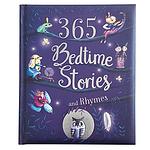The Greatest Russian "Folklore" Books of All Time
Click to learn how this list is calculated.
This list represents a comprehensive and trusted collection of the greatest books. Developed through a specialized algorithm, it brings together 300 'best of' book lists to form a definitive guide to the world's most acclaimed books. For those interested in how these books are chosen, additional details can be found on the rankings page.
Genres
Folklore is a category of books that encompasses traditional stories, beliefs, and customs of a particular culture or community. These stories are often passed down through generations and are deeply rooted in the history and traditions of the people. Folklore books may include myths, legends, fables, fairy tales, and other forms of storytelling that reflect the values, beliefs, and experiences of a particular group of people. They offer a glimpse into the cultural heritage of a community and provide insight into their way of life, beliefs, and customs.
Countries
Date Range
Reading Statistics
Click the button below to see how many of these books you've read!
Download
If you're interested in downloading this list as a CSV file for use in a spreadsheet application, you can easily do so by clicking the button below. Please note that to ensure a manageable file size and faster download, the CSV will include details for only the first 500 books.
Download-
1. The Enchanted Wanderer by Nikolai Leskov
"The Enchanted Wanderer" is a collection of short stories that follow the life of a Russian serf, Ivan Flyagin, who is destined to wander forever and never die. Throughout his travels, he experiences a myriad of adventures including becoming a monk, being captured by Tartars, and falling in love. The stories are filled with folkloric elements and offer a vivid depiction of 19th-century Russian society.
-
2. Evenings On A Farm Near Dikanka by Nikolai Gogol
"Evenings On A Farm Near Dikanka" is a collection of short stories that take place in a small Ukrainian village. The stories are filled with folklore, supernatural elements, and humorous anecdotes, depicting the lives and adventures of the villagers. Through vivid descriptions and lively characters, the book offers a glimpse into rural life in 19th-century Ukraine, blending reality with fantasy in a captivating and entertaining manner.
-
3. The Tale Of Cross Eyed Lefty From Tula And The Steel Flea by Nikolai Leskov
The narrative is a whimsical Russian folk tale that recounts the story of a tiny, mechanical steel flea crafted by English craftsmen as a gift to the Tsar. The flea is an engineering marvel, able to dance to the Tsar's delight. However, Russian craftsmen are challenged to demonstrate their own skill by making something even more impressive. Lefty, a talented but cross-eyed craftsman from Tula, takes on the task and, with his exceptional craftsmanship, manages to outdo the English by fitting the flea with minuscule horseshoes, showcasing the ingenuity and pride of Russian artisans. The story blends humor, national pride, and a celebration of the underdog's triumph through skill and creativity.
-
4. The Tale Of Igor's Campaign by Unknown
"The Tale of Igor's Campaign" is an epic 12th-century literary work from the Old East Slavic tradition, which recounts the failed military expedition of a Rus' prince against the Polovtsians, a nomadic steppe tribe. The narrative is imbued with a sense of tragic heroism and explores themes of loyalty, courage, and the futility of war. It blends historical fact with legendary elements, showcasing the cultural and political landscape of medieval Kievan Rus'. The text is also notable for its lyrical and stylistic qualities, which have had a lasting influence on Slavic literature and national identity.
-
5. Morphology Of The Folktale by Vladimir Aioakovlevich Propp
"Morphology of the Folktale" is a seminal work in the field of folklore studies that analyzes the structure of Russian folktales to identify their simplest irreducible narrative elements and their arrangement. The author introduces the concept of "functions" which are common plot devices used in folktales, and categorizes these functions into a consistent and repeatable framework. This structural approach to the study of tales reveals that despite the varied and complex surface of stories, their underlying structures follow a limited number of patterns. This methodology not only provides a tool for analyzing tales but also influences subsequent structuralist and narratological approaches in the broader field of cultural studies.
-
6. Tales by Nikolai Leskov
The book is a collection of short stories that delve into the lives, customs, and beliefs of 19th-century Russian society through a series of engaging and often satirical narratives. The stories are known for their colorful characters, ranging from the clever and resourceful to the foolish and superstitious, and they often contain moral or philosophical lessons. The author's use of language is notable for its inventiveness and the way it captures the diverse dialects and idioms of the Russian people. Through these tales, the author provides a rich tapestry of Russian culture, exploring themes of faith, tradition, and the human condition.
Reading Statistics
Click the button below to see how many of these books you've read!
Download
If you're interested in downloading this list as a CSV file for use in a spreadsheet application, you can easily do so by clicking the button below. Please note that to ensure a manageable file size and faster download, the CSV will include details for only the first 500 books.
Download




